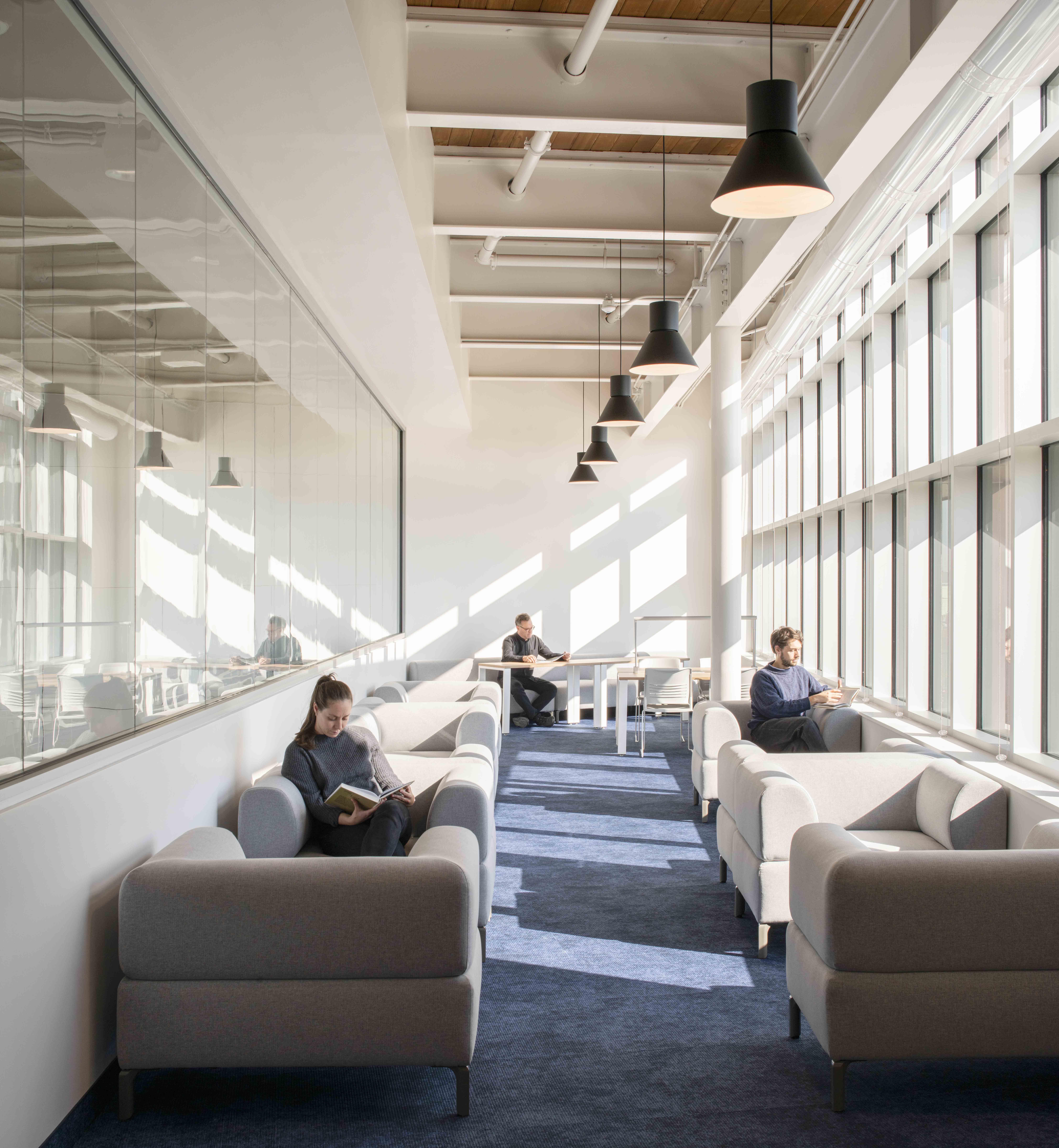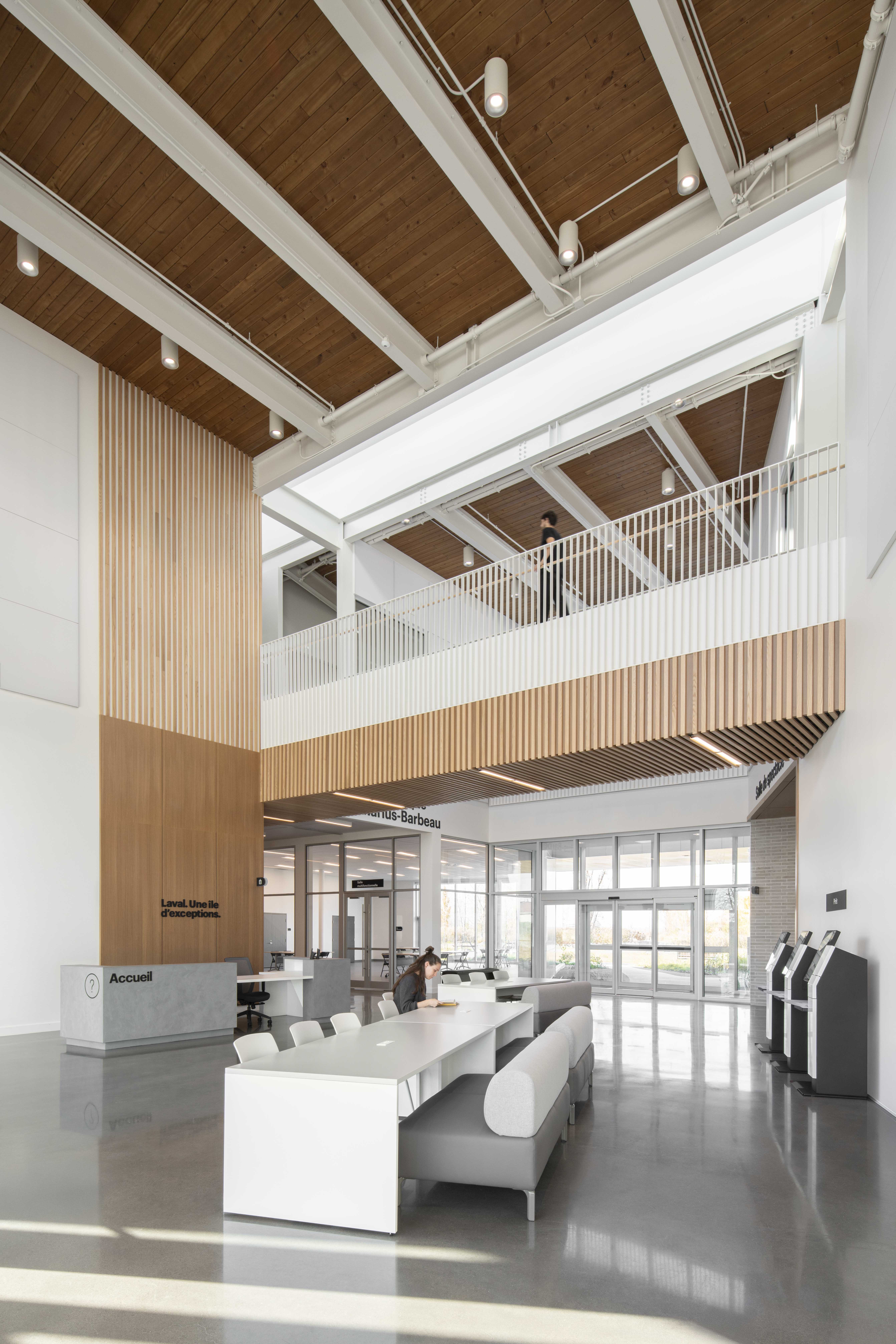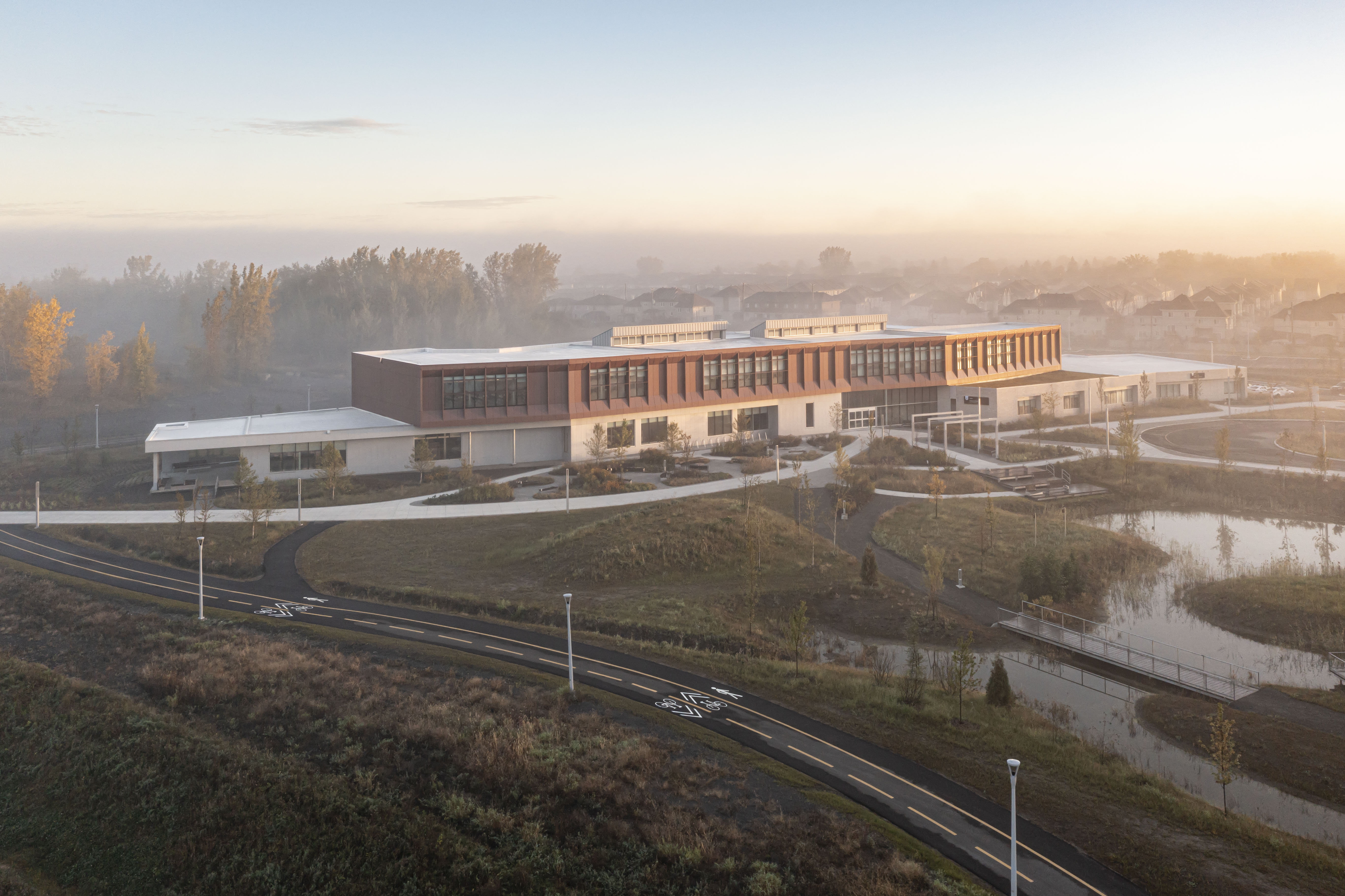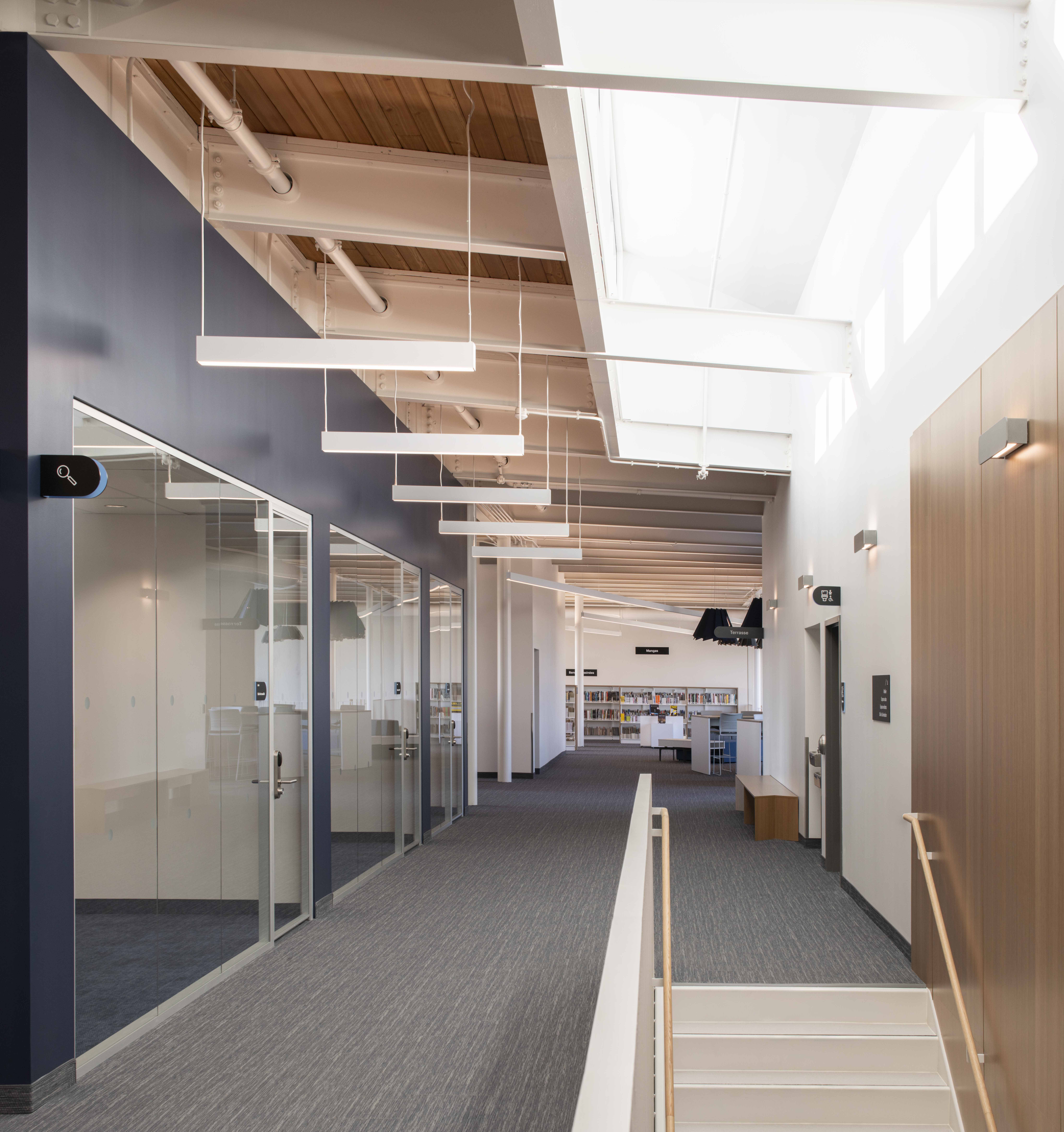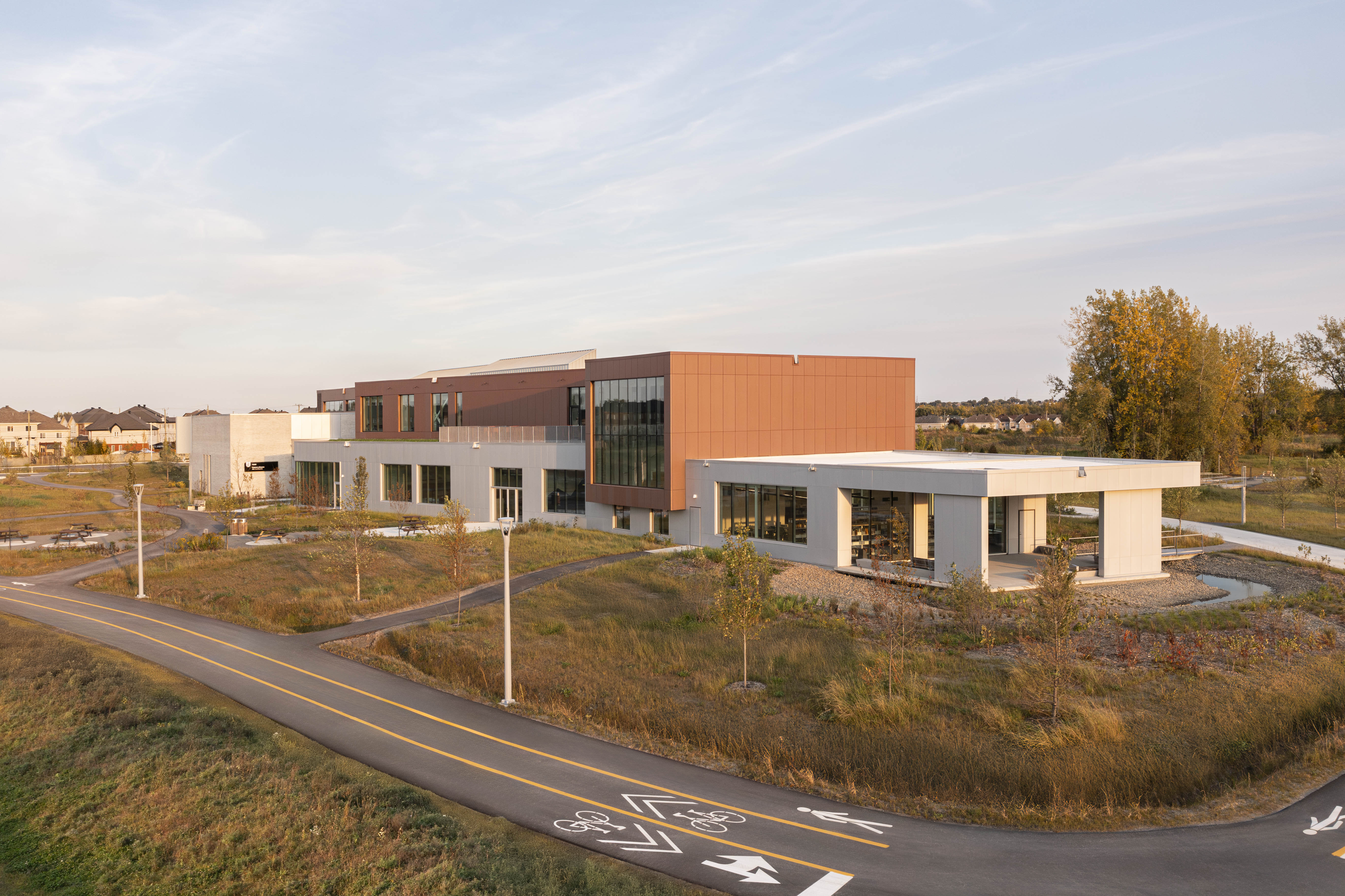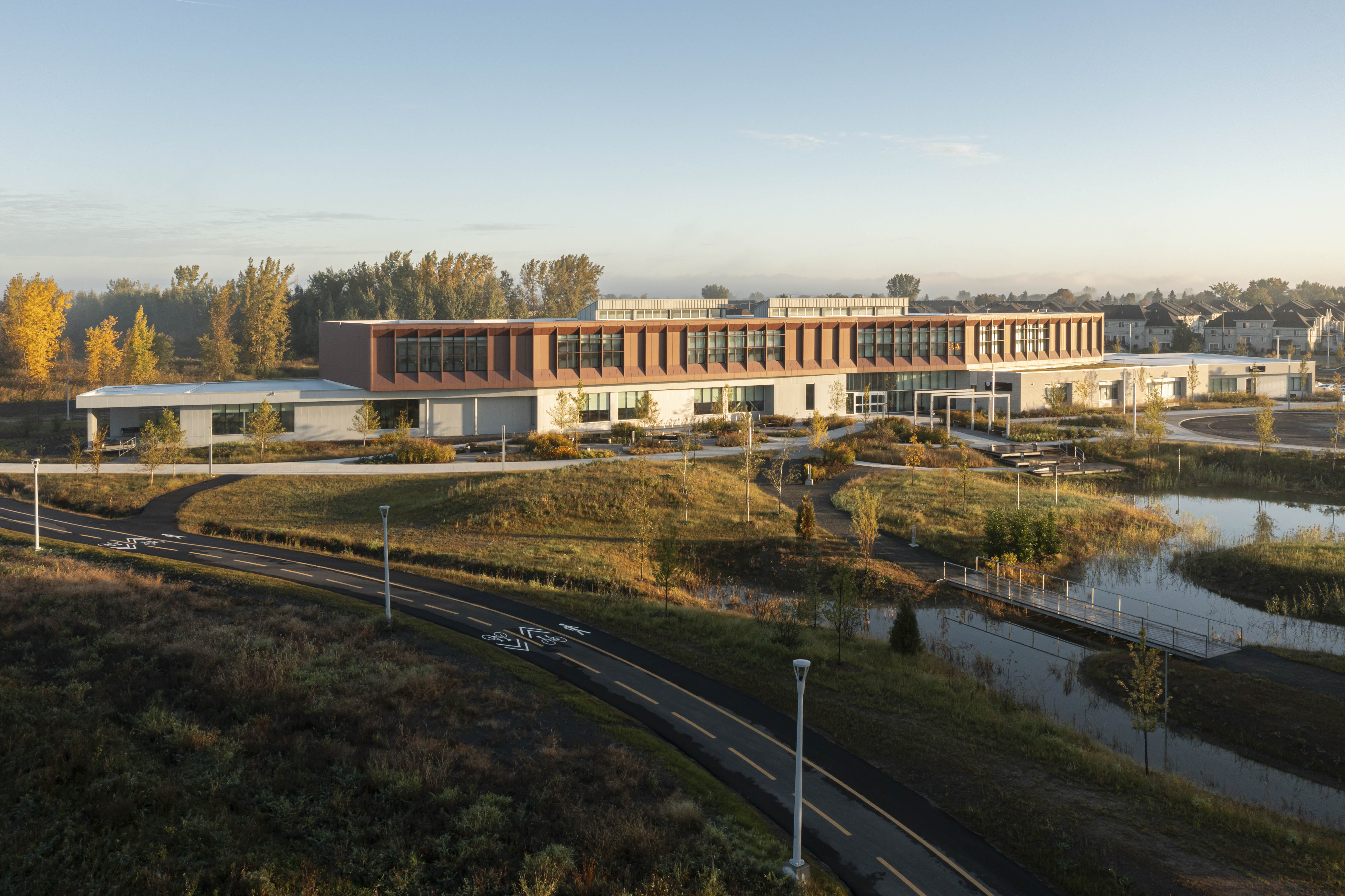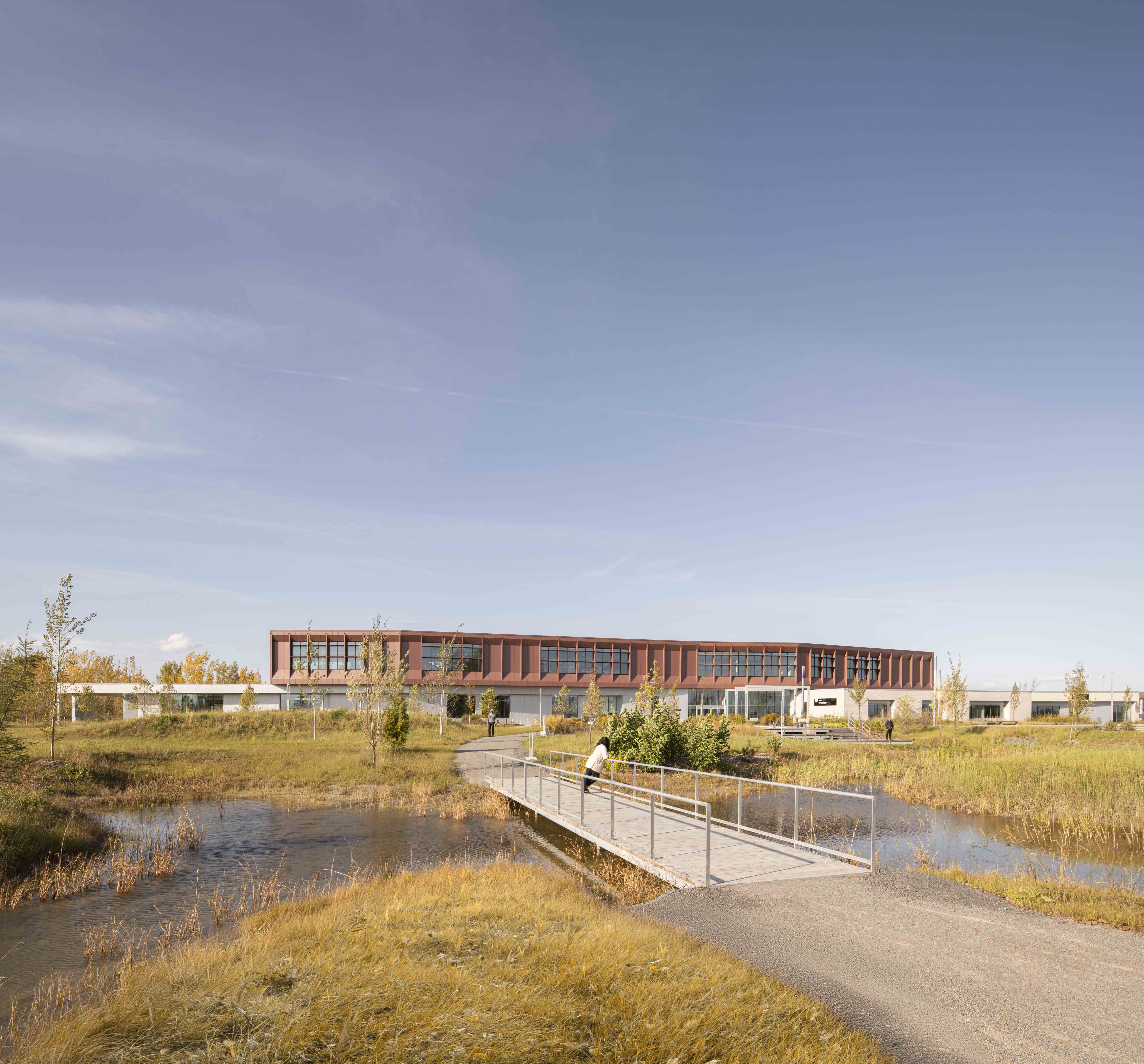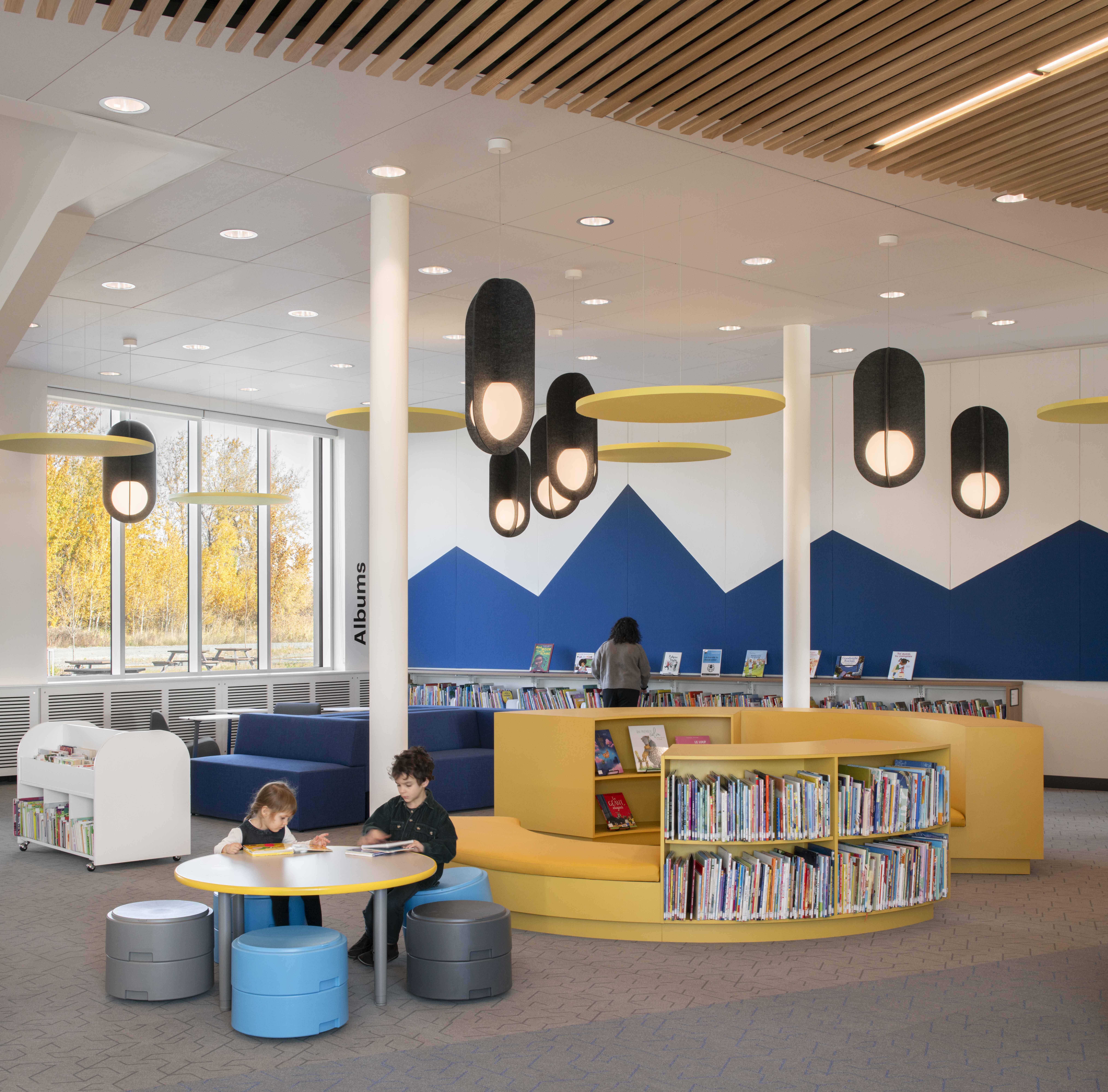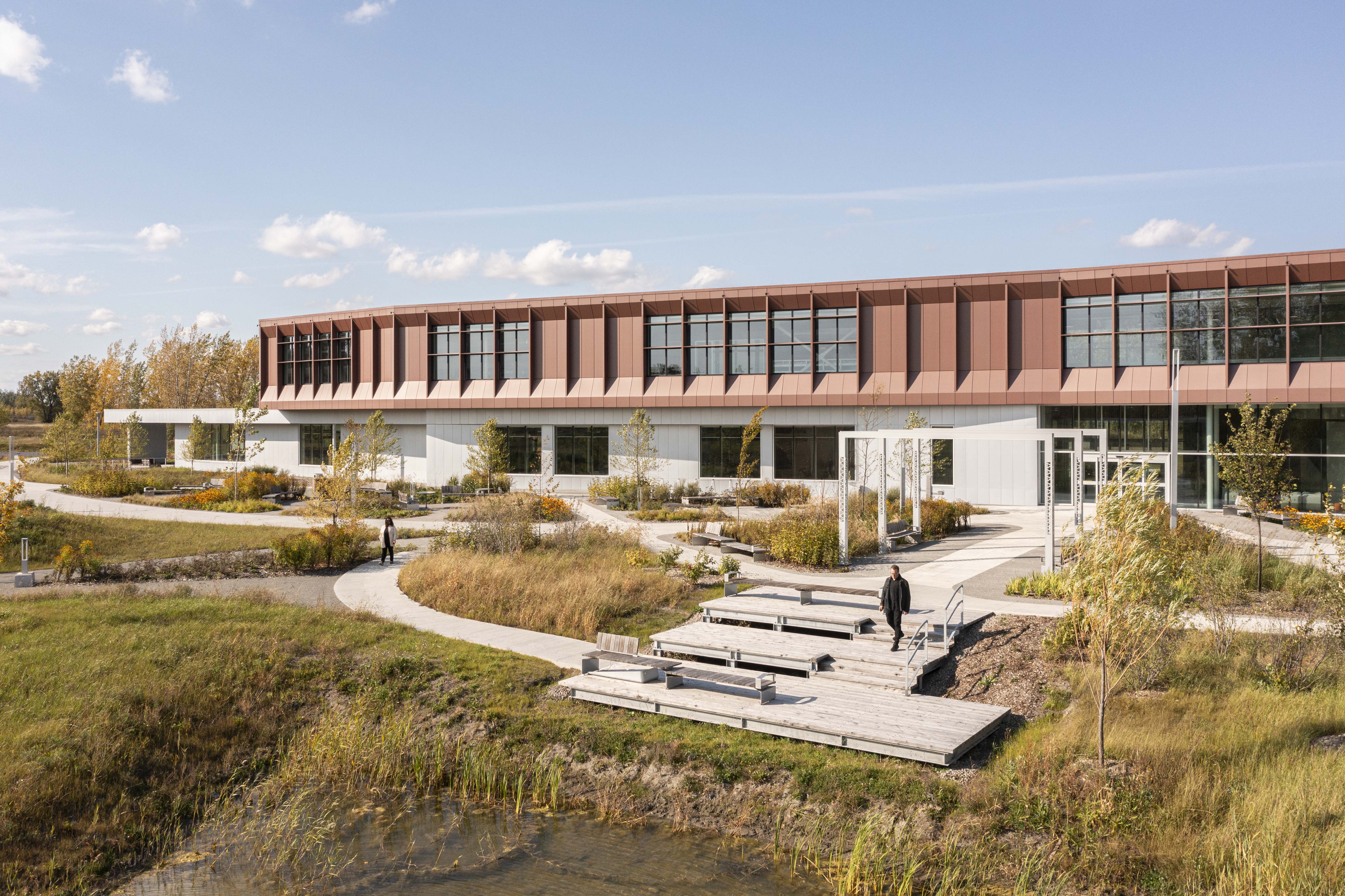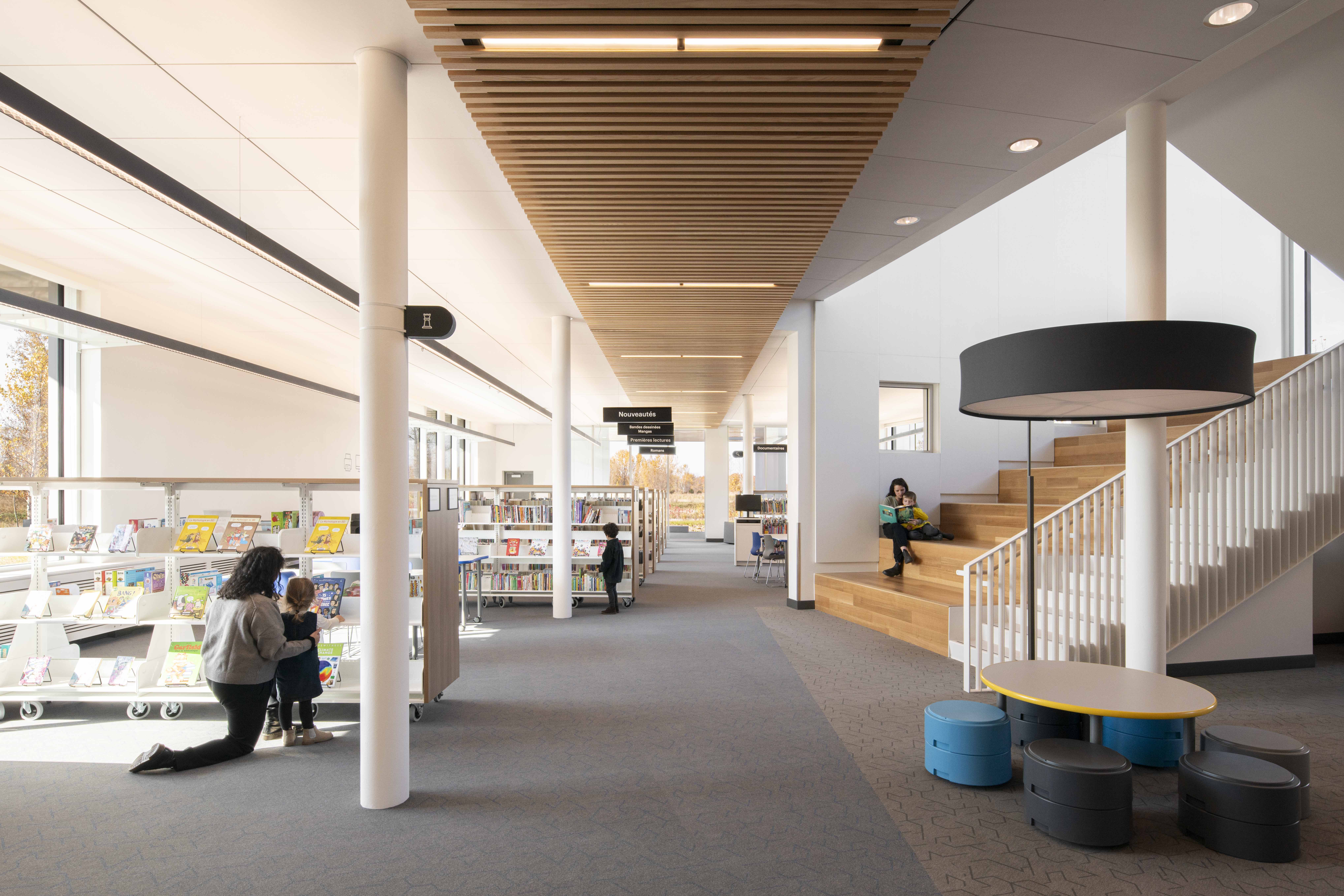SHORT DESCRIPTION
A new civic landmark is redefining eastern Laval. Built on a 13-acre former petrochemical site, Espace citoyen des Confluents is a testament to thoughtful urban regeneration. Since its opening in fall 2024, this long-awaited facility—comprising a library, community spaces, a multifunctional theatre, and a police station—has quickly become a vibrant gathering place for local residents. Designed by Montreal-based firm Cardin Julien, the project exemplifies a sustainable, site-specific architectural approach. Inspired by the ecological principle of eco-morphosis, the design reflects a careful response to environmental, programmatic, and contextual parameters. The building’s elongated, angular form follows an east-west axis to maximize passive solar gains, while deep overhangs and brise-soleils mitigate overheating and create textured, dynamic facades. Earth-toned materials harmonize with the site’s natural palette, reinforcing the building’s presence as a distinctive, yet integrated, civic beacon. Internally, the program is structured around a luminous central hall that links the north and south areas of the site. This fluid, open space acts as a spatial and social anchor, facilitating intuitive circulation between the library, community areas, and outdoor spaces. The two-level layout supports a natural zoning of uses—quiet study upstairs, active engagement on the ground floor—while modular furnishings and flexible rooms enhance adaptability. The landscape, designed by Projet Paysage, completes the transformation by regenerating the former industrial grounds into an ecologically rich, community-focused environment. Rainwater retention basins, repurposed excavation materials, a dense canopy, and an educational arboretum create a resilient, biodiverse setting that supports cultural events, daily leisure, and ecological awareness. With its bioclimatic approach, social roots and exemplary landscape integration, Espace citoyen des Confluents is a model for Laval's future municipal infrastructures. It marks a turning point in the way public facilities can be designed in an urban environment, thanks to the restoration of an abandoned site into a sustainable, living space.

